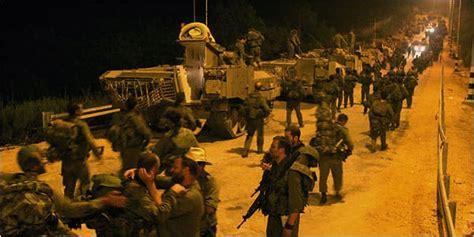
Israeli Troops Move Into Lebanon, Extending Fight With Hezbollah
Israel sent soldiers into southern Lebanon, escalating its weeks-long campaign to degrade the Hezbollah militant group, and raising the risks of a wider regional conflict.
Troops began what Israel said were “targeted ground raids” shortly before midnight local time on Monday. Lebanese media reported heavy shelling in the villages of Kfar Kila, Odeisseh and Khiyam, just across the border. There were also explosions in the coastal town of Ras Naqoura, and the Israeli army said it carried out “targeted” airstrikes in Beirut’s southern suburbs.
Amid calls for restraint from the US, UK and Arab states, Israel emphasized its ground operations would be “limited,” suggesting it isn’t planning to go deep into Lebanon or intending to hold territory for long. The incursions follow days of intense air strikes intended to eliminate Hezbollah’s leadership and degrade its weapons stockpiles.
The US said it “agreed on the necessity of dismantling attack infrastructure” near the Israeli border. The Pentagon said that would stop Hezbollah from conducting the type of attack on Israel that Palestianian militant group Hamas carried out on Oct. 7 last year, which triggered the war in Gaza.
Western and Arab powers are concerned that Israel could get bogged down during the incursions. While it has overwhelming military superiority, there is a danger it could be drawn into protracted fighting and the creation of another long-term “security zone” — Israel’s term for its 1982-2000 occupation of southern Lebanon. That in turn could spark a wider regional war involving Iran, Hezbollah’s main supporter.
Hezbollah’s leadership and facilities have been rocked by the relentless Israeli air strikes of recent weeks. On Friday, its long-standing leader, Hassan Nasrallah, was killed in a strike on Beirut. The Israeli military thinks it has now eliminated all but one of Hezbollah’s top 11 commanders.
Israel is “saying it’s limited,” Randa Slim, a senior fellow at the Middle East Institute, told Bloomberg television on Tuesday. “But the other side, Hezbollah, will also have a say in defining what kind of war it’s going to be, how limited it’s going to be, how bloody it’s going to be and how long it will last.”
In 1982, Israel sent soldiers into Lebanon to take on militants in what was meant to be a short operation. But it ended up holding parts of southern Lebanon for 18 years, suffering large numbers of fatalities in the process.
Israel is trying to ensure the tens of thousands of Israelis displaced by Hezbollah’s strikes over the past year can return home. Prime Minister Benjamin Netanyahu’s government made that an official war objective earlier this month.
While the conflict in Gaza against Hamas continues and truce talks remain stalled, the intensity of fighting has eased as the Palestinian militants — also backed by Iran — have suffered heavy losses. That has allowed Israel to focus more on Hezbollah.
The ground operation in Lebanon started a week before the one-year mark of Hamas’ attack on southern Israel, which killed 1,200 people and saw 250 abducted. About 100 people are still held captive by Hamas.
Israel’s air and ground campaign in Gaza has killed more than 41,000 Palestinians, according to the Hamas-run health ministry in the territory, stoking widespread anger in the region and other parts of the world.
US President Joe Biden wanted to avoid a ground incursion into Lebanon and last week announced a plan — along with France — for a 21-day cease-fire between Israel and Hezbollah. But Netanyahu struck a defiant tone on Friday when he addressed the United Nations in New York, saying Israel had “no choice” but to press on with its military attacks.
Hours later, Nasrallah was killed in a strike ordered by Netanyahu.
Hezbollah, which like Hamas is designated a terrorist organization by the US and many other countries, started firing on Israel on Oct. 8, prompting counter-strikes by Israel. Those skirmishes were largely contained until last month, when Israel stepped up its attacks.
It is widely thought to be responsible for booby-trapping Hezbollah’s pagers and detonating them on Sept. 18, maiming thousands of the group’s members. A day later, many of Hezbollah’s walkie-talkies exploded. Israel has neither confirmed nor denied its involvement. Last week, Israel began massive airstrikes across Lebanon that killed many senior Hezbollah commanders, but also hundreds of civilians, including at least 50 children, according to Lebanese health officials.
Lebanon’s Prime Minister Najib Mikati says one million people have probably been displaced in his country, with many trying to flee to Syria.
Hezbollah, meaning “party of God” in Arabic, is one of the world’s most-powerful non-state actors, with tens of thousands of fighters at its disposal. It’s also a political party and has substantial support among Shiite Muslims in Lebanon.
The Lebanese state has long been powerless to stop its military activities.
Israel’s air and ground attacks will likely worsen the economic and political turmoil that has roiled Lebanon for years. It has only a caretaker government because talks to elect a new president failed, inflation’s running at 35%, and the country’s in default on tens of billions of dollars of international bonds.
Source » msn.com





